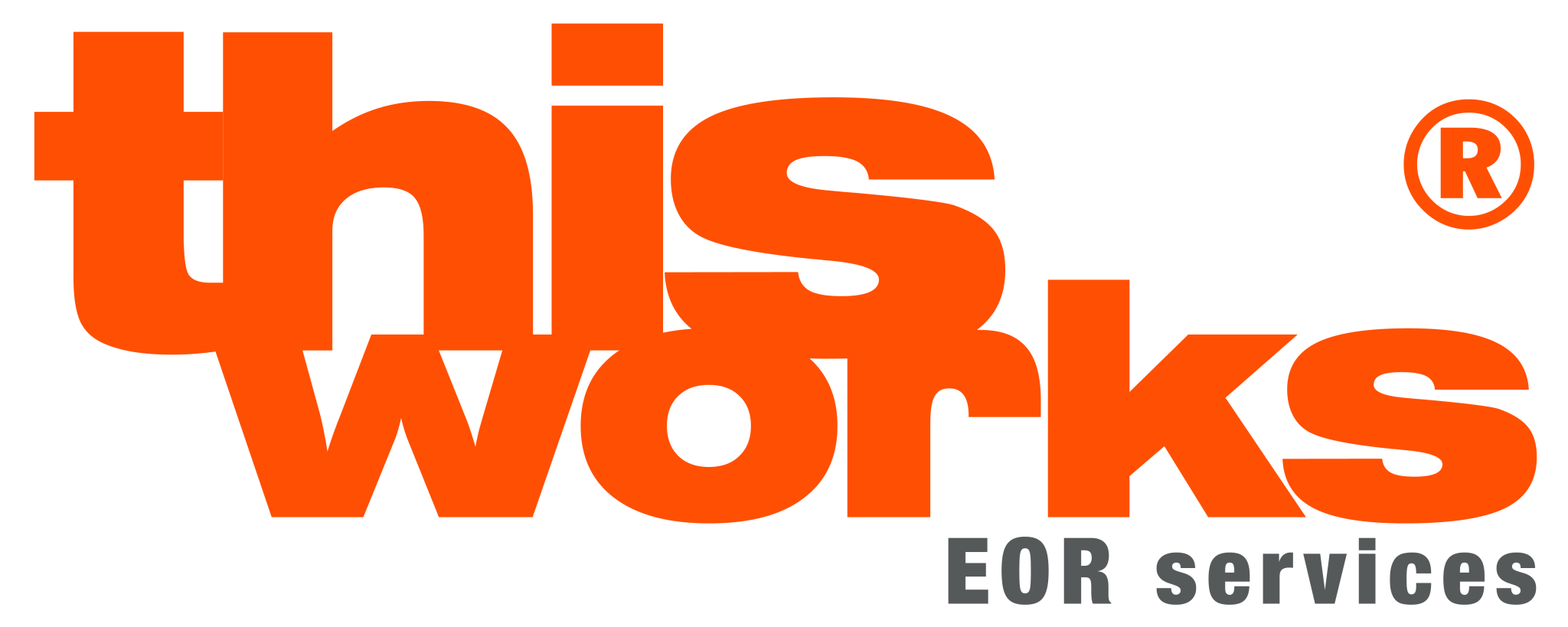
A Deep Dive into the Top 10 Trends of 2024
With 2024 coming up fast, HR workers need to keep up with changes at work. Today, we’re going to talk about the 10 most important HR trends that are shaping the future of work. Because of these trends, businesses are changing a lot about how they run and handle their employees. For instance, they hire people based on their skills, give them more freedom, and report on ESG problems. If HR pros follow these trends, the workplace will be happier and more effective. This will help them get and keep the best employees.
1. Employee mental health support in the workplace
Now more than ever, companies all over the world need to care about the mental health of their employees. It is clearer now than ever that people need more help with their mental health, especially since COVID-19. Companies now know that mentally healthy employees are involved, hardworking, and effective. Therefore, companies are setting up a lot of programs to increase the mental health of their employees. Some of these programs are designed to help the employees or to offer training for managers on mental health, and flexible work plans. Companies can make the workplace a healthy, friendly place for everyone by putting the mental health of their employees first.
2. Advantages of skills-based hiring in the modern workplace
Businesses that want to stay competitive in today’s fast-paced business world need to hire people based on their skills. The old ways of hiring people based on standard qualifications and knowledge are no longer sufficient. When companies use skills-based hiring, they can find people who have the right skills for the job, no matter what schooling or work experience they have. Further, it allows companies to find more qualified applicants, increase diversity and inclusion, and make sure that new hires have the skills they will need in their positions.
Including diversity, equity, and inclusion (DEI) factors in hiring processes based on skills has become important for companies that want to create a diverse and welcoming workplace.
3. Best practices for implementing workplace flexibility
Nowadays, it is more common to have flexible working hours. People want more flexibility over their work hours and the chance to work from home. Companies that let workers choose their own hours can not only get and keep the best workers, but they also get more work done and it’s proven that those employees are happier. Therefore, companies that offer flexible work should have clear rules and policies. Furthermore, they should provide the employees with the right technology and tools and promote a culture of trust and responsibility. Letting employees work from home can help them be more flexible also for the future.
4. The impact of ESG reporting on talent acquisition
News about the environment, society, and government (ESG) has grown a lot in the past few years. Businesses must now be open and honest about how they treat people and the world around them. It also says much about their hiring process. As more people look for jobs, the ESG responsibilities of a company are becoming more and more important to them. Using ESG reports as part of the hiring process can help businesses find people who share their values and goals and are driven to do their best. There will be less negative press about the company, and the business plan will be more sustainable and future-wise.
5. The importance of human skills in the evolving workplace
Undoubtedly, people skills are very important in the workplace, even though AI and technology are getting better all the time. No longer are smarts the only thing that sets you apart from others. Employers now want to hire people who have strong interpersonal skills and who have skills like emotional intelligence, creativity, critical thinking, and a good and open communication. You need these skills to get along with others, work well with others, and adapt to new situations. Businesses that focus on skill development can create workers who are ready for the future and can do well in a world that is connecting and becoming more complicated.
6. Redesigning physical office spaces for the future
Changes are also happening in the physical office space. Companies are rethinking the way offices are usually set up and making spaces that encourage teamwork, creativity, and health. Some of the new trends in office design are open floor plans, flexible workstations, and areas set aside for working together. Additionally, businesses are adding natural elements like plants and natural lighting to make the workplace more pleasant and stimulating. By changing the way offices look, companies can make their workers more productive, engaged, and happy.
7. Implementing a blended workforce strategy
Full-time workers, freelancers, agencies, contractors, and gig workers can all be part of a “blended workforce,” which is becoming more popular. Many businesses are starting to understand how useful it is to have a diverse network that can be easily expanded or contracted as needed. Companies can become more flexible, get access to specialized knowledge, and cut costs by using the skills and knowledge of both internal and external employees. It does, however, take careful planning, good communication, and strong project management skills to manage a blended workforce. Further, also cross-functional teamwork is being encouraged by businesses in 2024 through projects involving people from different departments, workshops for teams, and online tools for sharing knowledge. Employers in 2024 will have an advantage over their competitors if they can successfully use a blended workforce strategy.

8. Addressing the HR burnout crisis
Without a doubt, there is a burnout crisis in the HR field. According to a study from Forbes, 98% of HR professionals are suffering or show signs of burnout. They are often in charge of managing complicated tasks, dealing with problems from employees, and making sure that rules are followed. This could cause a lot of stress and burnout. To stop the HR burnout crisis, companies should put the health and happiness of their workers first, give them the tools and help they need, and encourage them to have a good work-life balance. HR professionals should also take care of themselves and look for ways to improve their skills and careers. Companies can make their HR function last and do a good job by addressing the HR burnout crisis.
9. Building up soft skills in the workforce
People skills, which are also called “soft skills,” are becoming more and more important in the workplace. Some of these skills are leadership, problem-solving, communication, and working as a team. Soft skills are necessary to get along with others, work well with others, and get through difficult work environments. Companies that emphasize developing “soft skills” encourage employees to do better teamwork and do a better job. Organizations can improve the soft skills of their employees by offering mentorship programs, training programs, and ways for employees to give and receive feedback such as an annual performance review.
10. Developing leadership skills for the future workplace
To make an organization successful in the year 2024, you need to be a good leader. In the next decades, leaders are needed who can inspire and motivate their teams, deal with uncertainty, and push for new ideas. Spending money on leadership development programs that teach skills like emotional intelligence, strategic thinking, and good communication is a good investment for businesses. Also, businesses should find and train the leaders of the future by mentoring them and planning for their eventual replacements. Organizations can build a strong pipeline of talent and ensure their long-term success by helping people learn how to be leaders.
Conclusion
Nowadays HR professionals have a one-of-a-kind chance to shape the future of work. By following the top 10 HR trends we talked about, companies can make the workplace a good place to work that attracts and keeps good employees. By putting mental health support for employees first and making the workplace more flexible, companies can build a strong and adaptable workforce that is ready to take on the challenges of the future. By following these HR trends, companies can become leaders in their field and make the workplace a place where people are free to think outside the box, work together, and grow.

FAQs
What are the top HR trends for 2024?
The top HR trends for 2024 encompass prioritizing employee well-being, embracing skills-based hiring, enhancing workplace flexibility, integrating ESG reporting into HR strategies, and adapting to the rise of automation in the workforce.
How is employee well-being prioritized in the workplace?
Employee well-being is prioritized through holistic wellness initiatives, flexible work arrangements, and fostering a culture of psychological safety and support, ensuring employees feel valued and supported in both their personal and professional lives.
What is skills-based hiring, and why is it gaining popularity?
Skills-based hiring focuses on assessing candidates based on specific competencies rather than traditional qualifications, ensuring better alignment with organizational needs, fostering diversity, and enabling organizations to meet the evolving demands of the workforce.
How is flexibility evolving in the workplace?
Flexibility in the workplace is evolving through hybrid work models, results-oriented environments, and agile workspaces, empowering employees to manage their schedules and workstyles while promoting collaboration and work-life balance.
Why are corporate academies re-inventing their approaches?
Corporate academies are re-inventing their approaches by offering personalized and continuous learning opportunities to develop future-ready skills, address evolving business needs, and foster a culture of lifelong learning and innovation within organizations.
What is the significance of ESG reporting in HR?
ESG reporting in HR signifies a commitment to sustainability, social responsibility, and ethical governance, influencing talent strategies, performance evaluation, and employer branding, and aligning organizational values with employee expectations and societal demands.
Why are human skills becoming crucial for the future of work?
Human skills such as communication, collaboration, and emotional intelligence are becoming crucial for the future of work, enabling adaptability, innovation, and effective teamwork in an increasingly complex and interconnected business environment.
How is hybrid working shaping the future workplace?
Hybrid working is shaping the future workplace by combining remote and in-office arrangements, leveraging technology for seamless collaboration, promoting work-life balance, and adapting to changing employee preferences and expectations for flexibility and autonomy.
What changes are expected in the physical office environment?
Changes in the physical office environment include agile office design, wellness-centric spaces, and technology integration to support collaboration, creativity, and employee well-being, fostering a dynamic and adaptable workplace culture.
How is HR adapting to the rise of automation in the workforce?
HR is adapting to the rise of automation by leveraging AI-powered solutions for recruitment, training, and data management, while also focusing on upskilling and reskilling initiatives to prepare the workforce for the future and ensure continued relevance and competitiveness in the digital age.
Article Author – Gino Peters
Gino Peters is the Commercial Director at ThisWorks, with a rich history of nearly a decade in international payroll. Throughout his tenure, he has consistently kept abreast of evolving labor legislation, ensuring that ThisWorks remains at the forefront of industry knowledge. Beyond his vast expertise, Gino is deeply committed to advising and guiding clients and partners with precise insights. His leadership guarantees that all content and operations at ThisWorks meet the highest standards of clarity, accuracy, and compliance.
Follow him on Linkedin
Book a free consultation with Gino Peters






